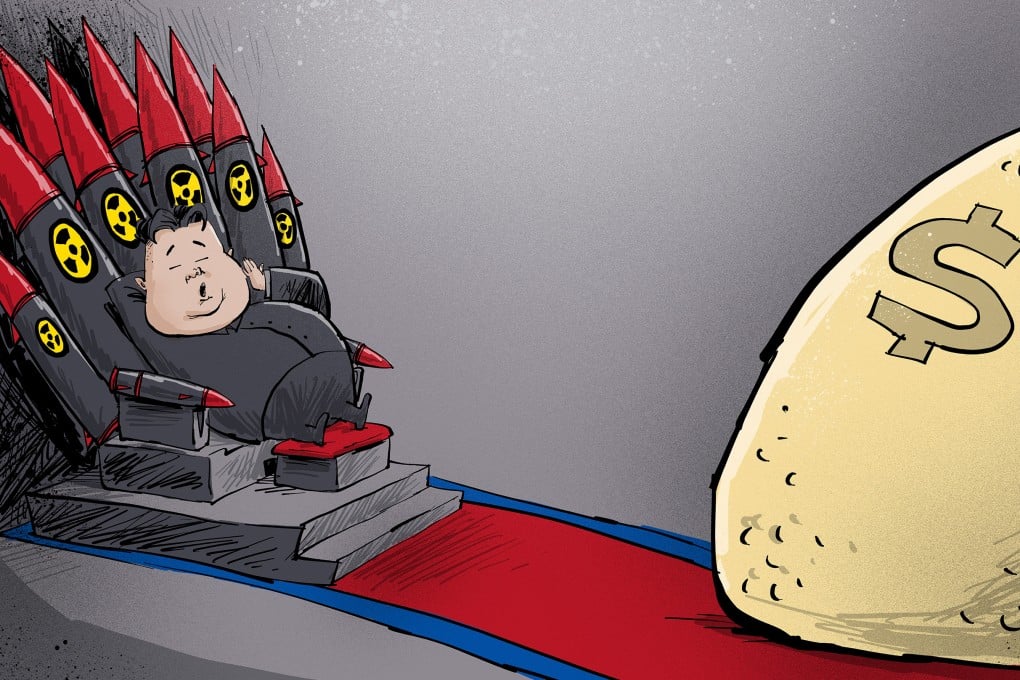Advertisement
Opinion | Economic incentives will never be enough for North Korea to denuclearise. When will the US and its allies realise this?
- The US, South Korea and the UN all want North Korea to give up its nuclear weapons in exchange for economic benefits – but Pyongyang must make the first move
- While Kim Jong-un has shown he can withstand years of sanctions, he cannot afford to give up his security guarantee
Reading Time:3 minutes
Why you can trust SCMP
13

South Korea’s President Yoon Suk-yeol this week unveiled details of his “audacious plan” for North Korea, which aims to offer Pyongyang economic benefits in exchange for concrete steps to denuclearisation. The problem is, however, that such plans have been tried previously, and have failed. This time, too, the chances of success appear slim.
In his Liberation Day speech on August 15, Yoon suggested improving “North Korea’s economy and its people’s livelihoods in stages if the North ceases the development of its nuclear programme and embarks on a genuine and substantive process for denuclearisation”.
The problem lies in the latter part. North Korea will only receive economic benefits if it first takes proactive steps to get rid of its nuclear weapons. As Pyongyang has shown the world, persuading it to do so will be no easy task.
Advertisement
For years, North Korea has rejected any kind of unilateral demand that would require it to give up its nukes before any concessions are made by the other parties. It reiterated this stance on Sunday, after UN Secretary General Antonio Guterres expressed his “full support” for the complete denuclearisation of the country. In response, a North Korean diplomat said his country had already “totally rejected [complete denuclearisation] without any toleration” in the past.

In the US, the Trump administration tried a similar approach with North Korea. During talks in 2018 and 2019, then president Donald Trump offered Pyongyang various economic incentives in exchange for denuclearising, but the North Koreans weren’t having any of it. Trump even showed North Korean leader Kim Jong-un a video depicting what their country could look like in the future with foreign investment and an opening up of its economy.
Advertisement
Advertisement
Select Voice
Select Speed
1.00x
